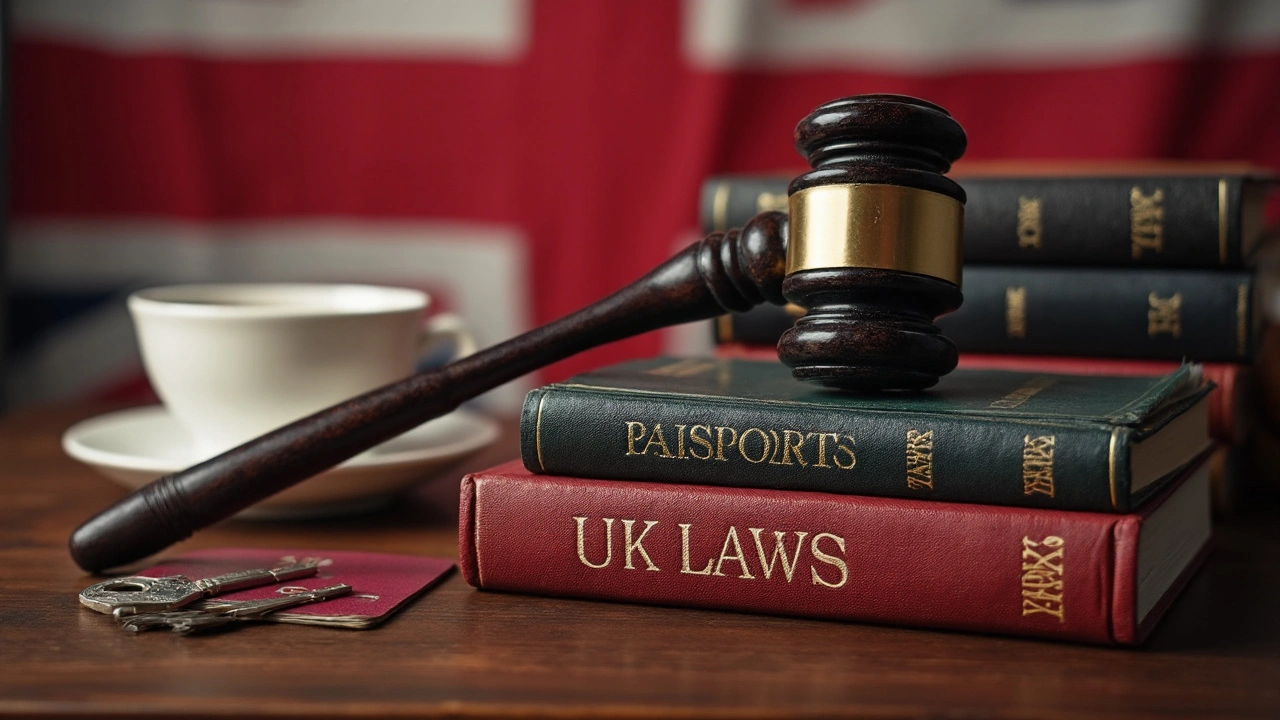Is Escort legal?

Ask a hundred people if escorting is legal in the UK, and you’ll get a hundred different, slightly hesitant answers. It’s a topic that gets whispered about at parties, tacked onto the end of news broadcasts, and asked in search engines by people who want facts, not vagueness. Here, you’ll get a straight answer—plus the details Londoners (and others in the UK) actually need, not just legal jargon, but real-life advice about navigating the law around intimate services. Too many people make risky assumptions without realizing that the specifics matter, right down to the location and the way services are offered. Let’s spell it out: this is about the legality of private, consensual escorting, where intimate services may be part of what’s on offer.
This article focuses only on the reality of escorting and intimate services, cutting out the fluff and giving you genuine answers. We'll break down what’s actually legal about escorting in the UK, the grey areas that get people in trouble, and how to protect yourself if you or someone you know is considering working in this field or using these services. Everything said here is up to date as of June 2025, so you know you aren’t relying on outdated myths or scare stories from tabloids.
The Basics: What the Law Actually Says About Escorting and Intimate Services in the UK
First off, there’s a lot of confusion here, so let’s get the truth front and centre. Escorting itself—meaning being paid for companionship, which can include intimate services—is not a crime in England, Wales, or Scotland. This is the part most people get wrong. You are allowed to be an escort and offer intimate services in exchange for money without breaking the law. The facts are clear: in the UK, it’s not a crime to sell or pay for sex between consenting adults if it happens privately. But, and it’s a big but, the law has plenty of traps for the unwary.
Things get tricky when you look beyond the act itself. While selling sex isn’t illegal, many of the things around it are. Soliciting in a public place, running or owning a brothel, or employing someone as an escort can all be crimes. For example, if you’re working in a flat with a friend, the law might suddenly see it as a ‘brothel’, and that’s a criminal offence—even if it’s just two of you looking out for each other’s safety. Another example: street-based sex work, like standing on a corner, is illegal, as is kerb crawling (when someone drives slowly around an area looking for sex workers). Police can and do take action in these situations, and the punishments can be harsh—fines and even jail time in the worst cases.
So, what’s safe? Private, consensual arrangements between adults, behind closed doors. Escorts usually meet their clients in hotels or at private apartments. If you avoid public solicitation, don’t work together in groups, and aren’t managed by someone else, you’re within the law. If someone’s “managing” your bookings or taking a cut (what the law calls “pimping” or “controlling for gain”), that crosses another clear legal line. Advertising is also a grey area, since UK law bans “causing or inciting prostitution for gain,” which can include some forms of web listings or social media. In practice, individual escorts do advertise, but it’s safest to keep it discreet and factual, never boastful or explicit.

Facts, Real-Life Risks, and How to Protect Yourself
The stats speak for themselves: around 80,000 people work in the UK sex industry, with about a third based in London, according to a report from the Home Office. Many work independently, but anyone planning to become an escort—especially if intimate services are part of the offer—should know how easy it is to accidentally break the law just by teaming up for safety or using the wrong kind of ad. It’s not just workers that need to be careful—clients face risks, too. If you arrange or pay for someone under 18, or unintentionally cross over into buying services from someone being controlled by others, you’re committing a serious crime. Double-checking ages, never dealing with third parties, and always insisting on consent aren’t just polite—they’re legal necessities.
Personal safety is a big deal. Because of the legal risks around working together, most escorts in the UK work alone, which can be dangerous. Technology helps—escorts now use screening services, share information about bad clients, and keep their location known to someone trusted. If you’re considering escort work: always let someone know where you are, use a separate work phone, and never give out your personal home address. Consider basic healthcare too; regular sexual health checks are routine and expected in the industry—available free through the NHS. Some workers carry personal alarms or use discreet apps that send emergency alerts if they feel threatened. Trust your gut, and walk away from anyone who makes you feel uneasy.
Money matters are touchy as well. It’s legal to be paid for intimate services, but UK banks sometimes freeze accounts if they notice payments with ‘explicit’ references. Cash is still common, but digital banking is getting more accepted so long as transactions stay discreet. Taxes aren’t optional—income from escorting is taxable, and declaring it honestly (usually as ‘self-employed personal services’) is a must if you want to sleep easy. If you’re worried about privacy, most UK tax forms let you be fairly vague about what you do, so long as you’re open if asked directly. Here’s a tip: lots of independent escorts get help from accountants who specialize in the adult industry—they know how to keep things legal and discreet.
| Legal Activity | Is it legal? |
|---|---|
| Selling intimate services privately (one-on-one) | YES |
| Working for an agency (managed or controlled) | NO |
| Advertising discreetly online | Yes, with limits |
| Street-based soliciting | NO |
| Working together in a flat | NO (seen as brothel) |
| Paying with cash | YES |
| Not declaring income to HMRC | NO |
And here’s something you might not expect: stigma is real. Even though escorting isn’t illegal, workers report feeling unable to go to the police if something goes wrong, worried they’ll face judgment or even exposure. Support networks like the English Collective of Prostitutes and UglyMugs.org help cut through this, offering advice and a non-judgmental ear if you’ve been harmed or need guidance. Consider reaching out sooner rather than later if you’re feeling isolated, no matter which side of the transaction you’re on.

What to Watch for: Grey Areas and Common Mistakes
Now for the nitty-gritty—the little details that catch people out. Maybe the most misunderstood rule is around brothels. Legally, even a two-person operation in a shared flat counts as a brothel. If you team up to stay safe and split rent or share clients, you risk getting raided or prosecuted. Some try to get around this by pretending to be flatmates, but police are wise to this, and the risks are real. The same goes for anyone who answers your phone, arranges meetings, or drives you to bookings—it might feel like you’re just getting support, but the law calls that ‘controlling for gain.’
Locations matter, too. Hotels are usually fine for private meetings, but some chains specifically ban sex work on their premises. If caught, you can be banned or, worse, have police notified. It’s smart to check hotel policies ahead of time, and if you’re an escort, use hotels known to be discreet and friendly. Most experienced workers say to avoid high-end chains with obvious security or nosy staff. Apartments rented for a day (through apps like Airbnb) are riskier—owners can and do cancel bookings if they suspect escorting. Always have a back-up plan and never argue if asked to leave; confrontation can quickly escalate.
Payment is another minefield. While cash is safest for privacy, some clients insist on digital transfers. Keep messages about money neutral, avoid using words like ‘sex’ or ‘escort’ in the payment reference, and don’t list services in text. If HMRC ever asks, you can honestly say you’re a ‘private companion’ or ‘personal services provider’—it’s legal, and it’s none of their business exactly what’s involved if you’re following the law. Remember, banks sometimes block payments they think are “suspicious,” so never use work accounts for your private life or vice versa.
Finally, screening clients is as much about protecting yourself legally as it is about safety. No escort should ever see a client who refuses to prove they’re over 18 or insists on communicating through third parties. Keep your ID and records secure, and never feel pressured to take risks. Genuine clients understand why you’re cautious and are happy to provide basic details. If they get angry or try to rush you—red flag! Walk away, no matter how tempting the booking might be. And, always, always use your own phone. Never let someone book you through an agency unless you want all the added legal complications that come with ‘working for gain’.
The big picture: escorting intimate services in the UK is legal, but it’s a legal minefield. Staying on the right side of the line means working alone, behind closed doors, with clear, private arrangements between consenting adults. Teaming up, advertising too openly, or having anyone else involved in your bookings can turn a legal job into a risky one. Learn the law, stay discreet, and always put safety and informed consent first—because ignorance isn’t a legal defence, and the reality of the law is stricter and stranger than most people expect.
